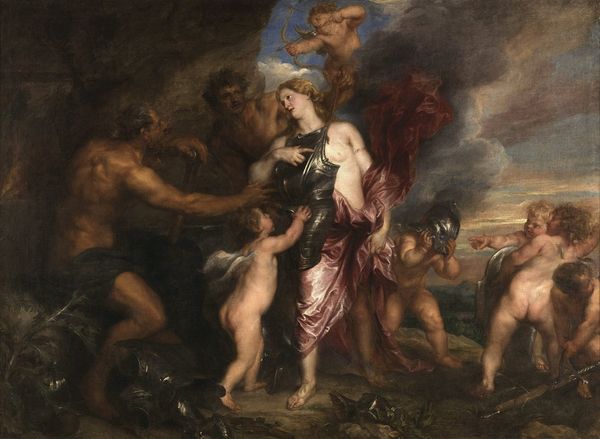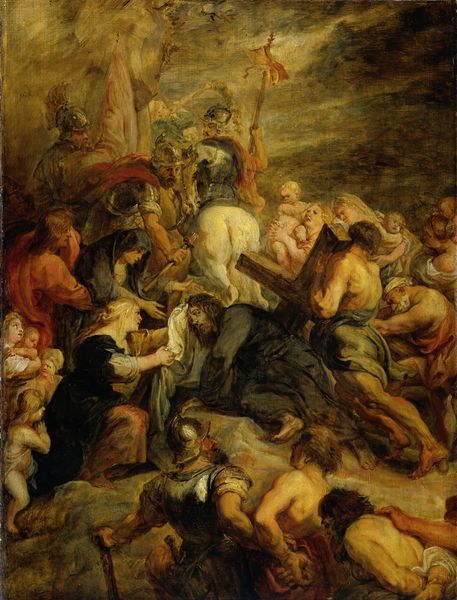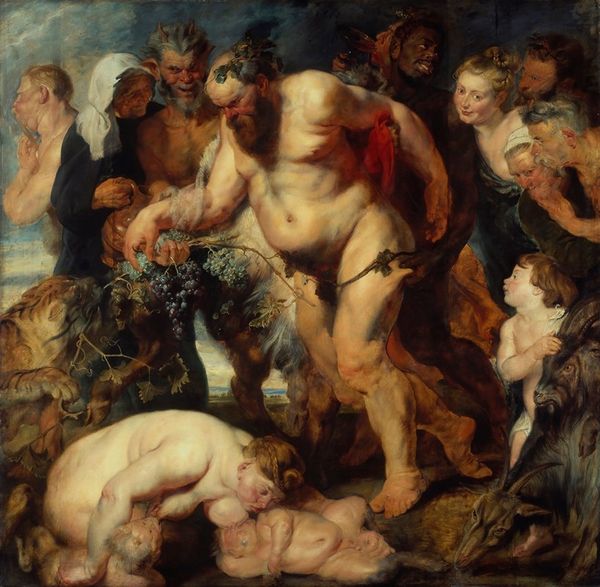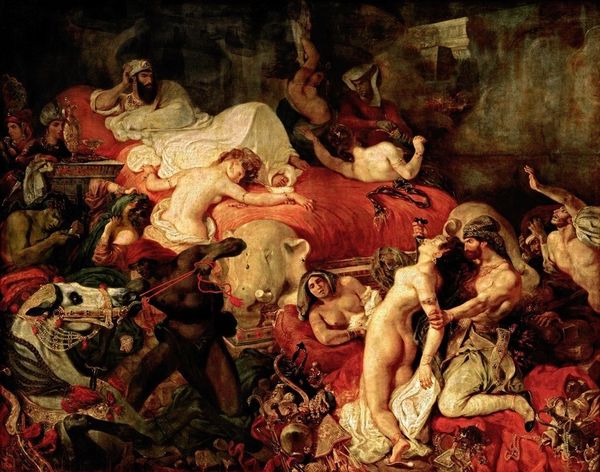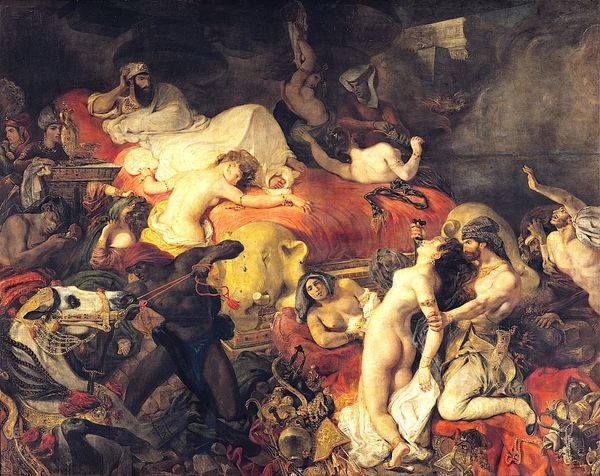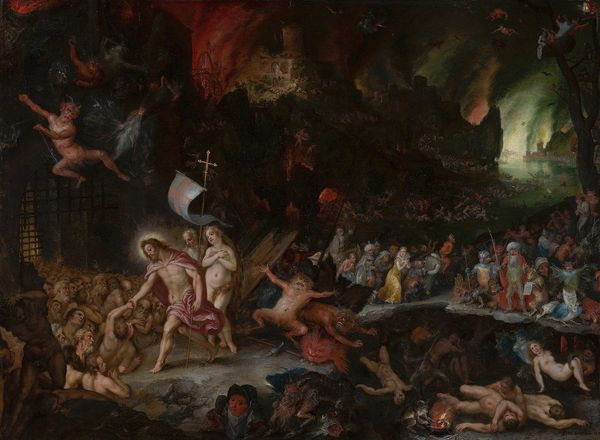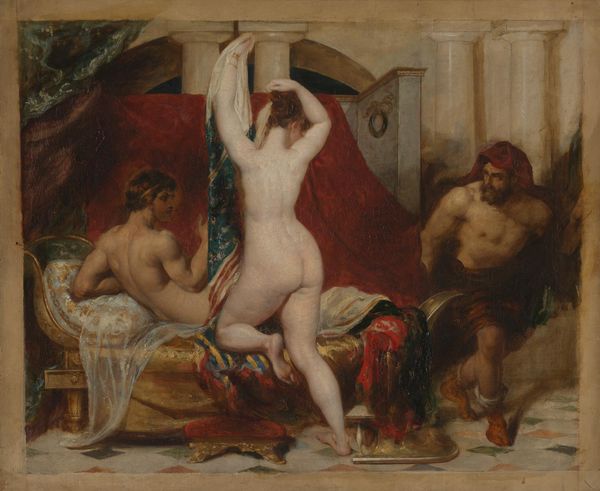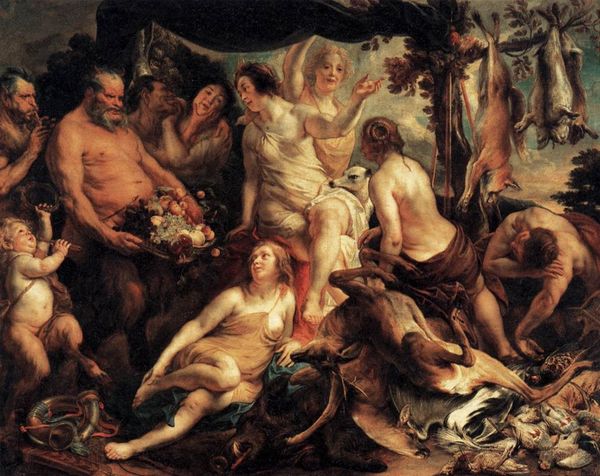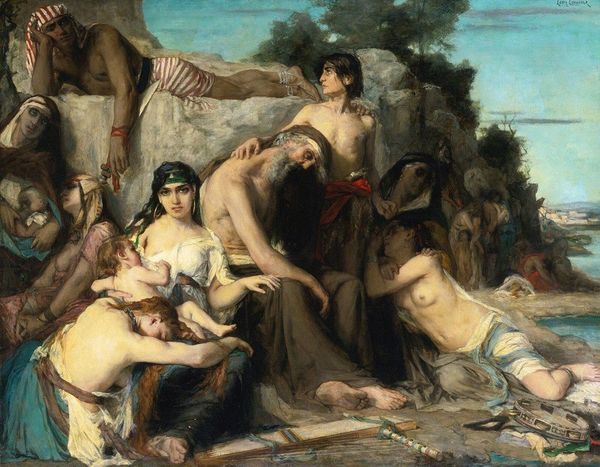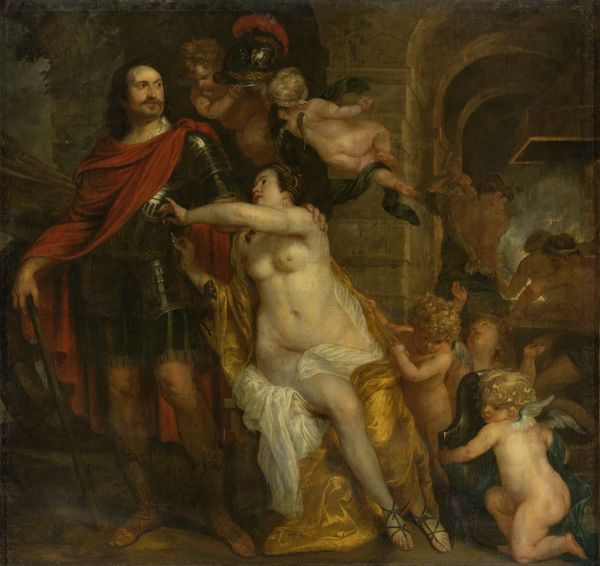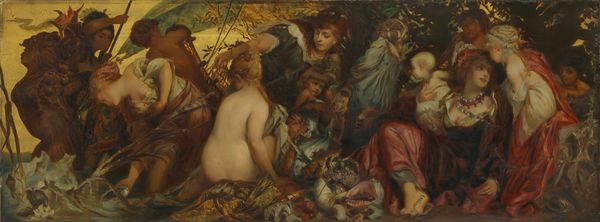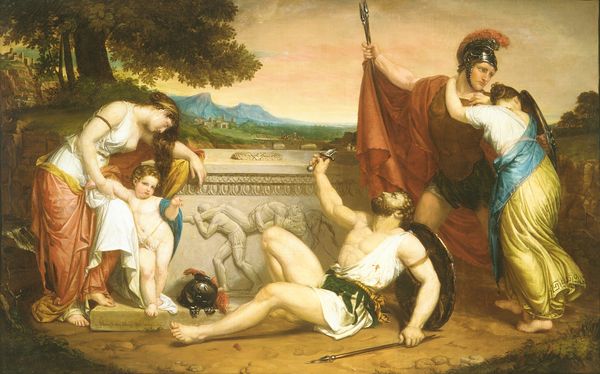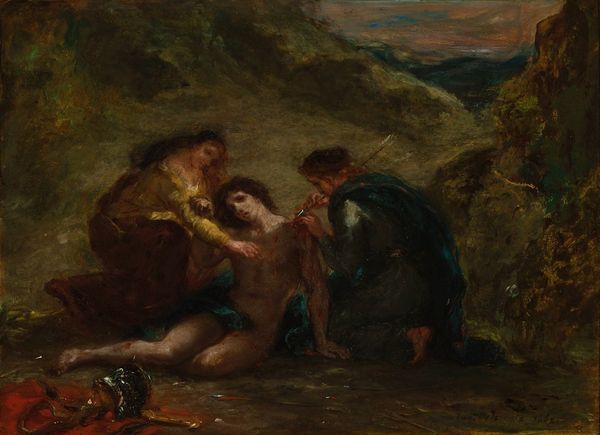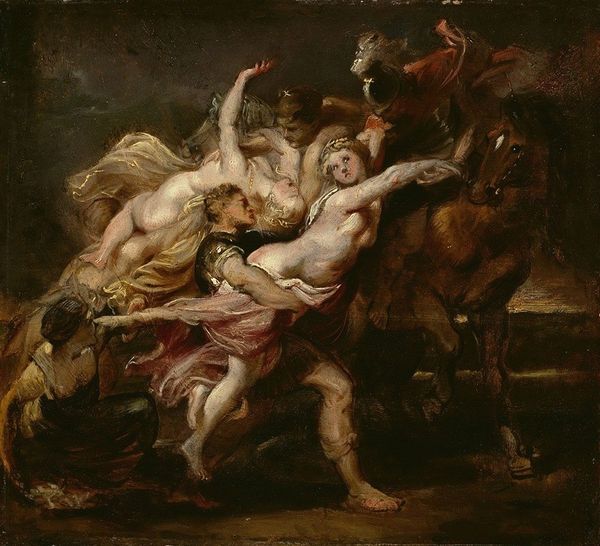
oil-paint
#
allegory
#
baroque
#
fantasy art
#
oil-paint
#
figuration
#
oil painting
#
mythology
#
history-painting
#
nude
Copyright: Public Domain: Artvee
Curator: What strikes me immediately is the dynamic composition; it’s just brimming with vitality, even within this armory scene. Editor: We’re looking at Peter Paul Rubens’s "The Return from War, Mars Disarmed by Venus," created between 1610 and 1612. A prime example of Baroque allegory rendered in oil paint. Curator: Yes, and this disarming isn't just physical. The goddess Venus, a symbol of love and beauty, quite literally wrests weapons from the grasp of Mars, the god of war, a rather blunt commentary on the triumph of love over conflict, isn’t it? The contrast is blatant: on one side, there is an imposing cannon while on the other, Venus, practically nude, is embraced by Mars. This gendered power dynamic makes it, quite frankly, problematic! Editor: Well, that visual dichotomy was very common at the time; Rubens certainly reflects the politics of imagery common to early 17th-century European courts, but there is more nuance, surely. Notice how Venus is assisted by putti. There's a real sense of movement created by all of the characters wrapping around Mars. Curator: Indeed, Cupid is practically gleeful, undermining Mars’ masculinity. In a feminist context, it's possible to see Venus reclaiming agency, not merely as a passive figure of beauty, but as an active agent of peace. I feel she becomes symbolic of women ending patriarchal war-mongering through, perhaps not consentual, acts. Editor: Contextually, the patronage of art significantly shaped the themes that artists explored. A work like this likely speaks to the socio-political climate of the time, perhaps commenting on the longing for peace amidst constant conflict, not always championing intersectional equality. These displays of allegorical strength helped bolster certain ideological views favored by their patron! Curator: But Rubens also painted female nudes extensively—can we ignore his, arguably fetishistic, approach to women in art in a conversation about Venus? Doesn't his representation impact the potential reading of her role, even now? Editor: No, of course not, but I think tracing the history of this painting through exhibitions, collections, and evolving interpretations can provide crucial insights into how attitudes towards war, gender, and power have transformed, making the work relevant today. Curator: An uneasy alliance of politics and personal fantasy, rendered by a master. That's Rubens! Editor: Precisely. It really reveals a moment of dynamic transition, where we can witness how art functions as both a mirror and a molder of our social values.
Comments
No comments
Be the first to comment and join the conversation on the ultimate creative platform.
